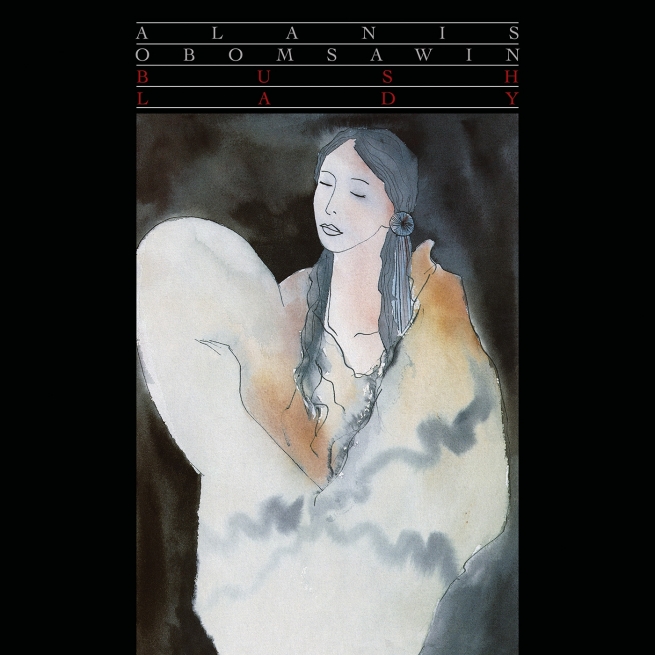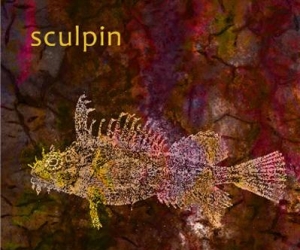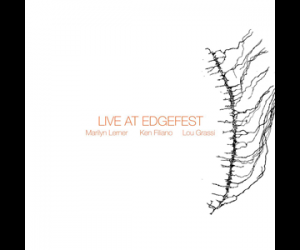
Alanis Obomsawin is known more for filmmaking than music, and indeed she is a prolific and much-lauded director who has made more than fifty films, many of them documentaries for the National Film Board about the indigenous experience in North America. She’s also a visual artist and a social activist. But Obomsawin, born into the Abenaki nation in New Hampshire in 1932 and raised in Quebec, actually began her creative career as a singer-songwriter in 1960, and performed traditional First Nations songs as well as her own compositions around North America through the ’60s.
She originally recorded Bush Lady, her sole full-length album, in 1984, but was unhappy with the production and shelved it until 1988, when she managed to gain control of the masters and put out her revised version herself. In the intervening decades it has been out of print and highly sought after by collectors, and now a newly rejigged and remastered version has been released by Constellation Records.
Obomsawin sings and speaks in English and French as well as Waban-Aki, with her voice ranging from light and airy and sweet to dark and haunting and heavy. Sometimes she is accompanied by a single, hypnotic drumbeat, other times by violin, cello, flutes, or oboe, but the instrumentation is always fairly sparse and in the background, leaving lots of room for Obomsawin’s voice and the stories she wants to tell. Many of them, like the one in the title song, describe the exploitation of Indigenous women by white culture or individual white men; others detail the theft of Abenaki land and the destruction of Indigenous communities. The gentle vocals and understated instrumentation make the songs sound less like cries of rage and calls to action than mournful, matter-of-fact recitings of painful histories. But they are no less powerful.


